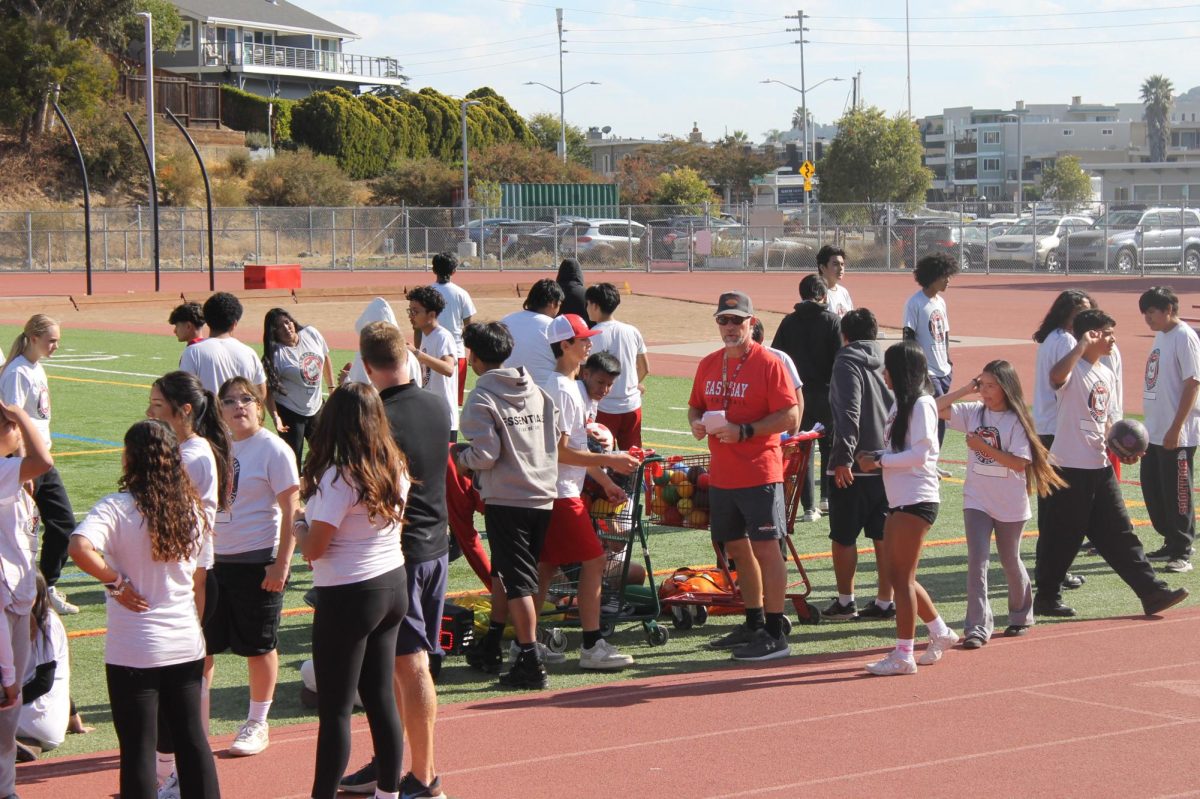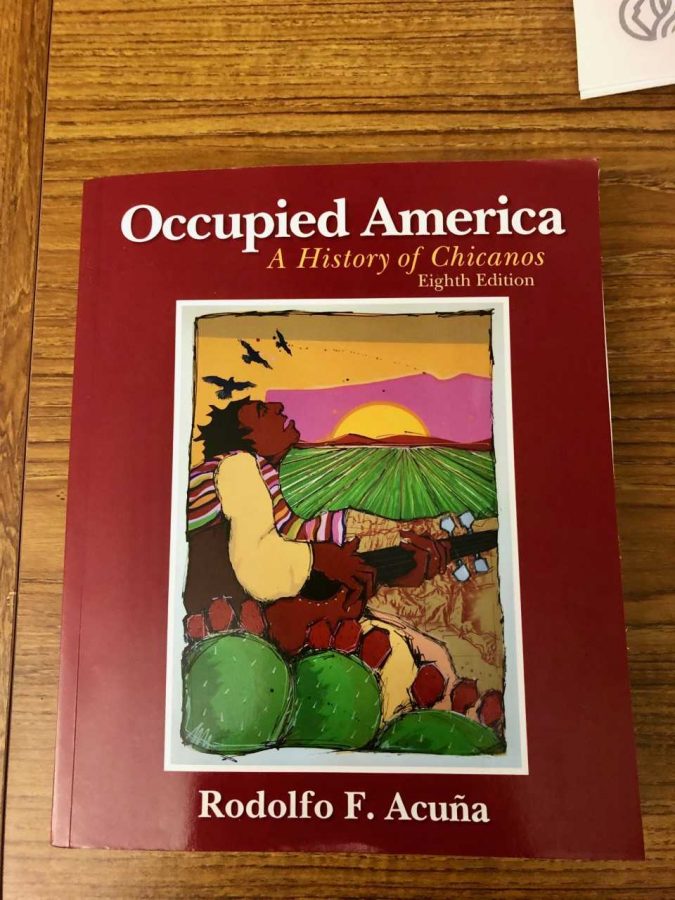The Importance of Ethnic Studies
January 29, 2019
Ethnic studies was a course I didn’t even know existed. When I found out it was going to be offered on my school’s campus, I was advised to take it, by my mother of course. I was excited but a bit skeptical. Then came the first day I discovered the forbidden treasures of ethnic studies, and realized how lucky I was to be taking the class.
At SRHS, our history and English curriculums do not match our student population. With a school that’s about 60% Latino and 40% Euroamerican, the material we are taught does not match who we are. We need a wider variety of history courses, including ethnic studies.
In Sophomore year English, we read one book by Isabel Allende. In Junior year AP English we had the honor of reading the inspiring poem, I Am Joaquin by Corky Gonzales. The class focused only on the transcendental aspect, neglecting to explore the true beauty and meaning of the poem. In US History, students spent only one class period watching a film on Cesar Chavez. A film being shown in a high school classroom instead of providing a lesson is always said to be a waste of time by most teachers. However, they had the utmost privilege of watching a film on the only Latinx movement we were taught about while the teacher typed away on their desktop.
Ms. Padayachee, a History and Link Crew teacher at SRHS also believes that an Ethnic studies class at SR is necessary, especially for freshman. She believes that history is much more meaningful than what the Eurocentric view provides. Padayachee and I both agree that the Eurocentric view of history that is taught to all of us blankets the commonality in the histories of all groups.
Eddy Calderon, an SRHS alumni who now attends College of Marin, recently enrolled in an ethnic studies course. He expresses his views of history classes at SRHS stating, “Everything was taught from the European perspective and we never saw the other side of the people who actually helped build this country from the ground up.” Calderon thinks ethnic studies would be valuable at SRHS because it teaches history from another point of view that connects with our population of students.
Ron Espiritu, a high school ethnic studies teacher in Los Angeles, does a great job in explaining the impact that courses such as these have on adolescents , specifically of Latinx and African American ethnicity. He explains, “Ethnics Studies is empowering, is liberating, is transformative for our young people.”(TED 2014).
I agree that classes like these are empowering because knowledge is power. Through understanding why racism exist, the origins of white supremacy, and the beauty of culture, we can work towards crushing the nasty ideologies that cause serious and harmful repercussions for minorities. And for the minorities, we begin appreciating the culture and history that makes us who we are.
Ethnic studies is transformative for young people considering how it allows students to develop an “intellectual identity” as said by Espiritu. This claim is based on a group of students in Arizona who are part of a Mexican-American studies program. The statistics shown in the TED talk presented a 93% graduation rate of students in the class versus the 50% dropout rate of students in the district who did not partake in the class.
Understanding our ancestor’s narratives and developing the ability to connect with those same emotions and experiences makes a difference in young people. With ethnic studies we get the chance to understand who we are, where we come from, the beauty in our struggles, and our true potential.
The first lesson in Intro to Ethnic Studies was supported and based on the section, One Important Caveat of author/professor, Eduardo Bonilla-Silva’s book, Racism Without Racists. Silva addresses a very valuable lesson, “The purpose of this book is not to demonize whites or label them “racist.” (Silva).
Many people argue that Ethnic studies is just a class that teaches you to “hate white people.” This claim is completely false and that is why the professor specifically opened up the class with this lesson and quote.
Before taking ethnic studies, I did not feel like I was meant to go to college. I was very discouraged and didn’t believe that education was for someone like me. After I learned about the courage of fellow Latinx high school students protesting for educational equity in the LA school blowouts of 1968, and how hard Latinx folk protested after ethnic studies was banned in Arizona in 2011, I realized that there is a place for me in higher education.
Learning about their bravery inspired me and many other students taking the class as well. Alondra Rios, a junior at SRHS, took Intro to Ethnic Studies and History of Latinoamericanos course at College of Marin, saying, “Ethnic Studies is a valuable class to have at SRHS because there is history we do not learn in the course of our lives. SRHS has about 65% [students] that are Latino and I believe it is important for the Latinx community to learn about our history’s past and present.”
Ethnic studies taught me about the blood, sweat, and tears that fellow American minorities have left on this land. Their blood, sweat, and tears fertilized this soil into becoming the strong nation that it is today. That is valuable history that not only SRHS students should learn about and take pride in, but also the entire nation. Taking this course has not only taught me to be proud of identifying as a Mexican, but also as a true hard working American.







































Adriana Rodriguez • Jan 30, 2019 at 12:16 am
Beautiful! Would have loved to have taken this class too.
Great Job! Esme!